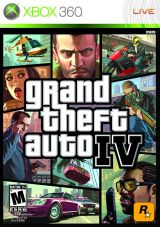One of the things that frequently comes up with regards to reviews is the presence of that enemy of journalism known as bias. This is kind of a weird, blurry area because you are giving people your opinion about something, which automatically removes all objectivity from your writing. Of course, you don't want to go in with preconceived notions either. Using Blue Dragon as an example again, it wouldn't make sense for me to review it if I hated Japanese RPGs because that would color my perspective on the game negatively through no fault of the game's. However, you'll rarely receive a review assignment that you're not qualified to write about, so this point is essentially a non-issue (and even if I do get assigned something that I know nothing about, like NASCAR for example, the internet is always available as a great research resource). That's something you should keep in mind when assembling reviews to include in your writing portfolio.
To defuse this possible confusion of journalistic bias versus personal bias, I prefer to label myself as a game critic, rather than a game journalist. In fact, given the previous categories, it's difficult to classify those as journalism either... most of what we game journalists do is closer to entertainment writing (of the type you'd find in other enthusiast media, like "Entertainment Weekly" or "People" magazine) than actual journalism anyway.
Features: I'm lumping everything else into this category even though it's not all necessarily going to fit. In an unbelievably general sense, features can be almost anything, including: event coverage like our devastatingly awesome BlizzCon 07 coverage; interviews like Patrick's terminally sweet Devil May Cry 4 interview; video features like my beloved 'Spy-Hunter; and columns like the one that you're reading now. While I would recommend writing up a bunch of the previous categories (news, previews and reviews) to include in your portfolio as examples of your work, features generally require tons of planning and special access to public relations muckety-mucks, development teams and an expense-able travel account. Features are intended to be massive, grandiose and exclusive in some way or another, so you'll probably want to wait until you have a boss that can help you out with setting one up before you start. Honestly, if you're just starting out, you really don't want to start with these projects because they can be a nightmare to try and deal with even after years of experience.





